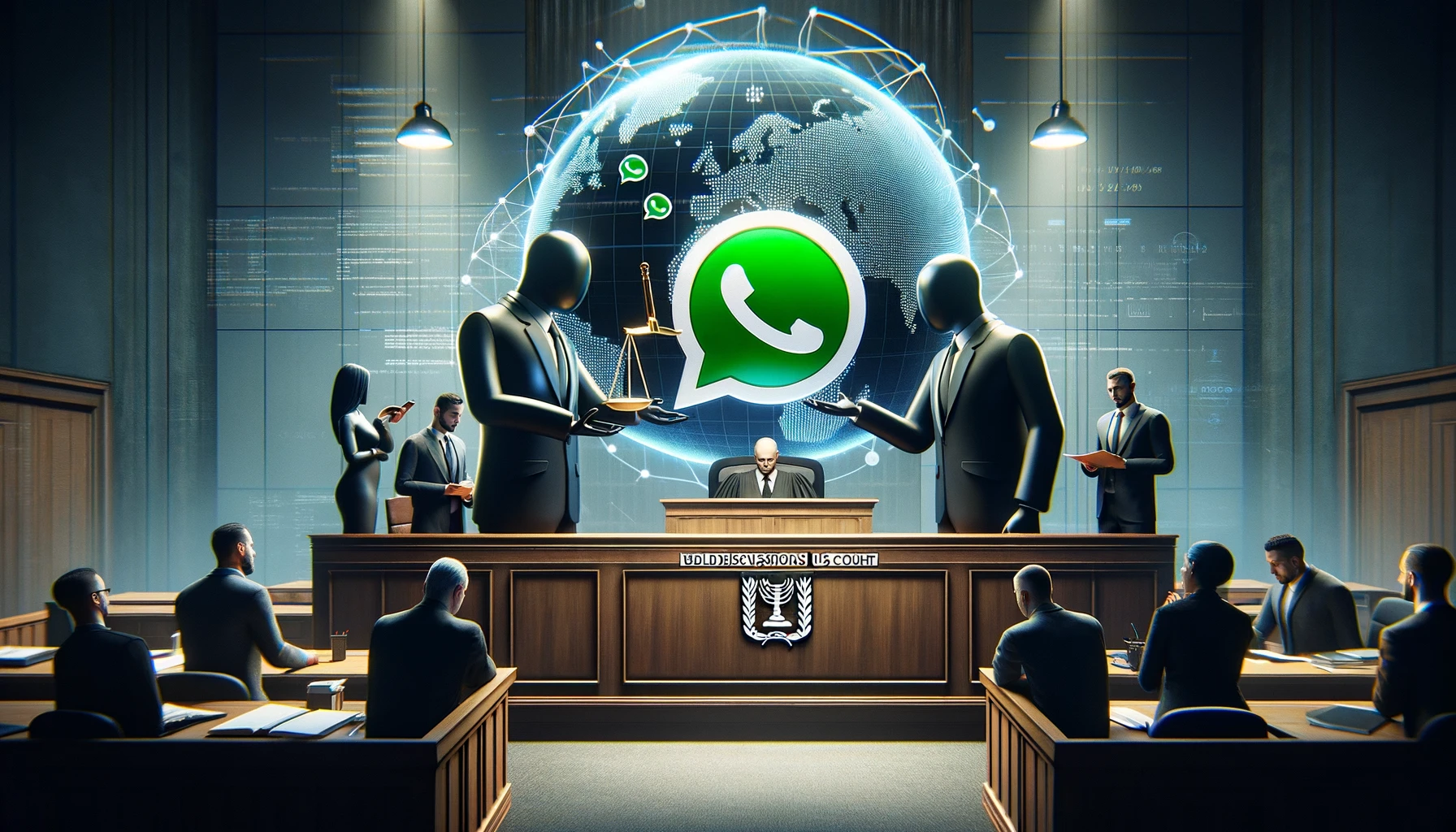About Us
Contact Us
Advertise With Us
Disclaimer
Privacy Policy
Terms & Conditions
Copyright © 2024 - BoldDiscussions.com

In an age where digital security is of paramount importance, a recent ruling by a US court has marked a significant milestone. The court's decision mandates NSO Group, the creator of the formidable cyber-espionage tool known as Pegasus, to relinquish its software codes to WhatsApp. This landmark case has caught the eyes of many, demonstrating a pivotal moment in the ongoing battle for digital privacy and security.
The heart of this development lies in the judicial verdict handed down by Judge Phyllis Hamilton. This verdict represents a critical win for WhatsApp, a company under the umbrella of Meta, which has been entangled in legal warfare with NSO since 2019. The essence of the dispute revolves around the illicit use of Pegasus to infiltrate the digital sanctity of WhatsApp users, a matter that WhatsApp has taken up with great vigor.
NSO Group, known for its elusive cyber weaponry, has long maintained a veil of secrecy over its operations. The company, which operates under the scrutiny of the Israeli Ministry of Defense, has its products, including Pegasus, licensed for sale to foreign governments. These tools, designed for espionage, have raised widespread concerns over privacy violations and misuse.
The ruling is a beacon of hope for millions who seek refuge in the digital world from unwarranted surveillance. A spokesperson from WhatsApp articulated the significance of this judgment, emphasizing it as a crucial step in safeguarding users from unauthorized intrusions. The message is clear: entities engaged in the creation and distribution of spyware cannot operate above the law.
The backdrop to this narrative includes the Biden administration's decision in 2021 to place NSO on a blacklist, citing the company's activities as detrimental to the foreign policy and national security interests of the United States. This move underscores the gravity of the threat posed by spyware like Pegasus to global digital security.
The court's mandate for NSO to hand over Pegasus's codes to WhatsApp is not just a procedural outcome; it is a statement. It reaffirms the principle that digital platforms have a right, and indeed a duty, to defend their users against espionage tools that violate privacy and security norms. This ruling sets a precedent, potentially paving the way for more stringent controls over the distribution and use of cyber surveillance tools.
While the regulation of spyware presents a clear path toward enhanced digital security, it is not without its challenges. On one hand, it ensures that individuals and institutions can operate in the digital space without fear of unauthorized surveillance. On the other, it raises questions about the balance between security and surveillance, especially in matters of national security and law enforcement.
This development is a testament to the resilience of digital platforms like WhatsApp in the face of challenges to user privacy. It sends a powerful message to companies specializing in spyware: accountability is not optional. As we navigate the complex web of digital interactions, this ruling stands as a beacon of hope, inspiring confidence in the ongoing quest for a secure and private digital experience.
The court's decision in favor of WhatsApp against NSO Group is more than a legal victory; it is a milestone in the journey towards a more secure digital world. It underscores the importance of protecting digital rights and privacy in the face of increasing cyber surveillance. As we look to the future, this ruling inspires optimism, reinforcing the belief that the digital realm can, and should, be a safe haven for all its users.
Share This Post





BOLDDISCUSSIONS
We Produce Content That informs, Educates And Entertains People Around The World to stay updated on every topic with confidence.
Copyright © 2024 – BoldDiscussions.com

